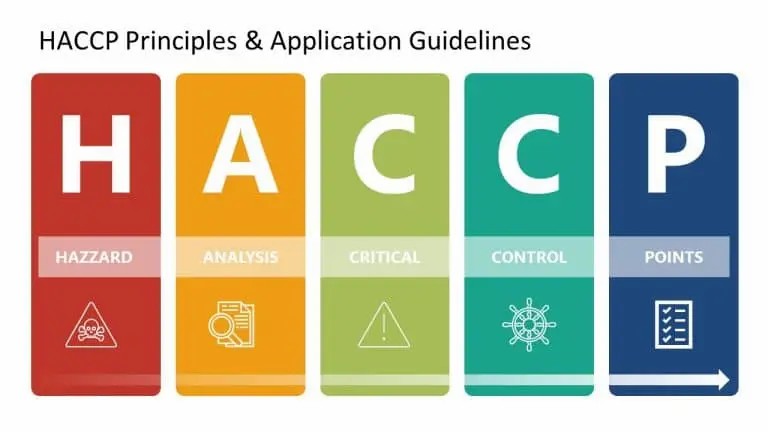HACCP Certification: Your Comprehensive Guide to Food Safety Compliance in Dublin, Cork, Galway, and Beyond
In the vibrant food landscape of Ireland, the safety and quality of food are paramount. For restaurant owners, catering professionals, and food manufacturers in Dublin, Cork, Galway, Limerick, Waterford, and Belfast, adhering to food safety regulations is not just a legal obligation; it’s a commitment to public health. This is where HACCP Training becomes vital.
Why HACCP Certification is Essential for Food Businesses in Ireland
The Hazard Analysis and Critical Control Points (HACCP) system is an internationally recognized approach to food safety. It is designed to identify potential hazards in food production and establish critical control points that help mitigate those risks. Here’s why HACCP certification is indispensable:
- Legal Compliance: Irish food safety laws mandate HACCP compliance for all food businesses. Failing to meet these requirements can lead to fines, legal action, or closure.
- Food Safety Management: HACCP outlines a proactive system for managing food safety, ensuring that food is safe for consumers.
- Preventing Food Contamination: Regular training in HACCP principles minimizes the risk of foodborne illnesses, thereby protecting public health.
- Enhancing Business Reputation: Achieving HACCP certification enhances your business’s reputation, generates consumer trust, and gives you a competitive edge.
Understanding HACCP Principles
The HACCP system is built upon seven fundamental principles:
- Conduct a Hazard Analysis: Identify potential hazards that could compromise food safety.
- Determine Critical Control Points (CCPs): Establish points in the process where hazards can be controlled or eliminated.
- Establish Critical Limits: Set maximum and minimum limits for each CCP to ensure safety.
- Establish Monitoring Procedures: Determine how you will monitor each CCP to ensure they stay within critical limits.
- Establish Corrective Actions: Describe the actions that will be taken when monitoring shows that a CCP is not under control.
- Establish Verification Procedures: Confirm that your HACCP system is working effectively through testing and monitoring.
- Establish Record-keeping Procedures: Maintain records of monitoring, training, and corrective actions to ensure compliance.
The Business Benefits of HACCP Training and Certification
Beyond compliance, HACCP certification offers numerous benefits for food businesses:
- Improved Operational Efficiency: A structured approach to food safety can streamline operations, reducing waste and increasing productivity.
- Customer Satisfaction: Ensuring food safety increases customer confidence and loyalty.
- Reduction in Liability: By implementing HACCP principles, businesses minimize their risk of liability associated with foodborne illnesses.
- Access to New Markets: HACCP certification may be a requirement for exports and accessing certain markets.
How to Get HACCP Certified: A Step-by-Step Guide for Irish Food Businesses
Here’s a straightforward process to achieve HACCP certification:
- Enroll in HACCP Training: Choose a reputable course, such as the Best HACCP Course in Ireland.
- Conduct a Hazard Analysis: Identify risks and create a plan tailored to your business.
- Implement HACCP Plans: Engage your staff in adhering to HACCP principles and ensure proper documentation.
- Seek Certification: Partner with a recognized certification body to audit your processes.
- Continuous Improvement: Regularly review and update your HACCP plan to adapt to changes.
Online vs. In-Person HACCP Training: Pros and Cons
Choosing between online HACCP training and in-person courses can affect your business’s learning curve. Here’s a comparison:
- Online Training: Flexible, often cost-effective, and allows for self-paced learning. Ideal for busy professionals.
- In-Person Training: Offers direct interaction with instructors and real-time feedback, fostering an engaging learning environment.
Common HACCP Violations and How to Prevent Them
Understanding common pitfalls can help businesses enhance their food safety protocols:
- Lack of Documentation: Ensure all actions and monitoring are correctly recorded.
- Insufficient Training: Invest in regular training sessions to keep your staff updated on best practices.
- Poor Monitoring of Critical Control Points: Establish a routine for checking CCPs and addressing issues immediately.
How HACCP Compliance Enhances Business Reputation and Customer Trust
In today’s competitive market, customers are increasingly informed about food safety. HACCP compliance not only protects public health but also elevates your brand's image:
- Builds Customer Loyalty: Customers feel safer when they know you’re committed to food safety.
- Enhances Brand Image: Being HACCP certified sets you apart from competitors and showcases your dedication to quality.
How to Conduct a HACCP Audit and Maintain Compliance
Conducting regular audits is essential for maintaining compliance. Follow these steps:
- Review your HACCP Plan: Ensure it aligns with current operations.
- Check Records: Verify that documentation is up-to-date and complete.
- Engage Staff: Involve relevant personnel and gather feedback on the HACCP process.
- Address Non-Conformities: Take immediate corrective actions for any identified issues.
Conclusion
HACCP training is not merely an obligation—it's an opportunity for food businesses across Dublin, Cork, Galway, Limerick, Waterford, and Belfast to enhance their operations, build customer trust, and ensure public health safety. Embrace the challenge and ensure your business is HACCP compliant today!
Call to Action: Ready to take your food safety practices to the next level? Enroll in our HACCP & Food Safety Training Course now and secure your certification!



 349,500 Offered Certificates
349,500 Offered Certificates
 24/7 Online Training
24/7 Online Training
 Money Back Guarantee
Money Back Guarantee
 Fully Accredited Courses
Fully Accredited Courses
